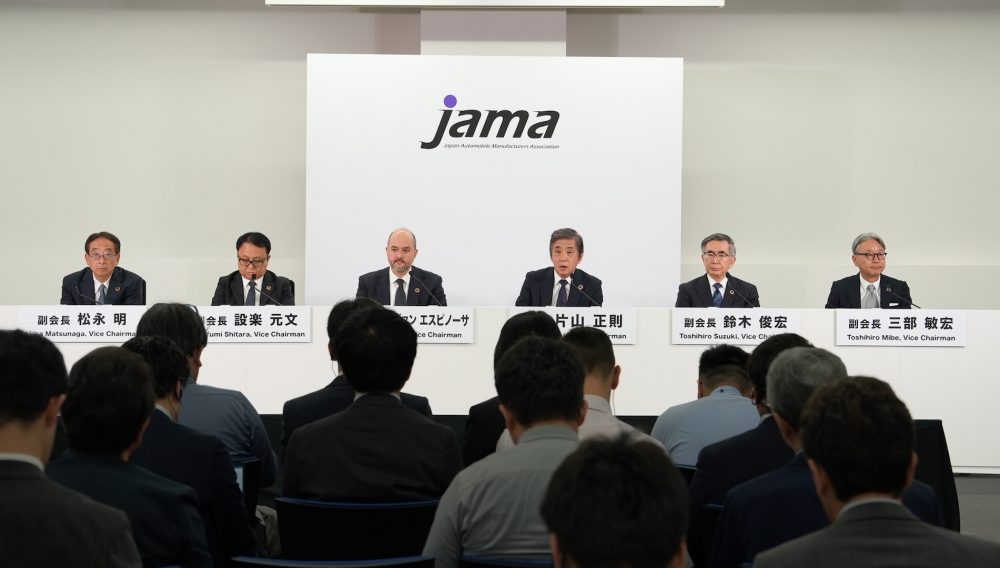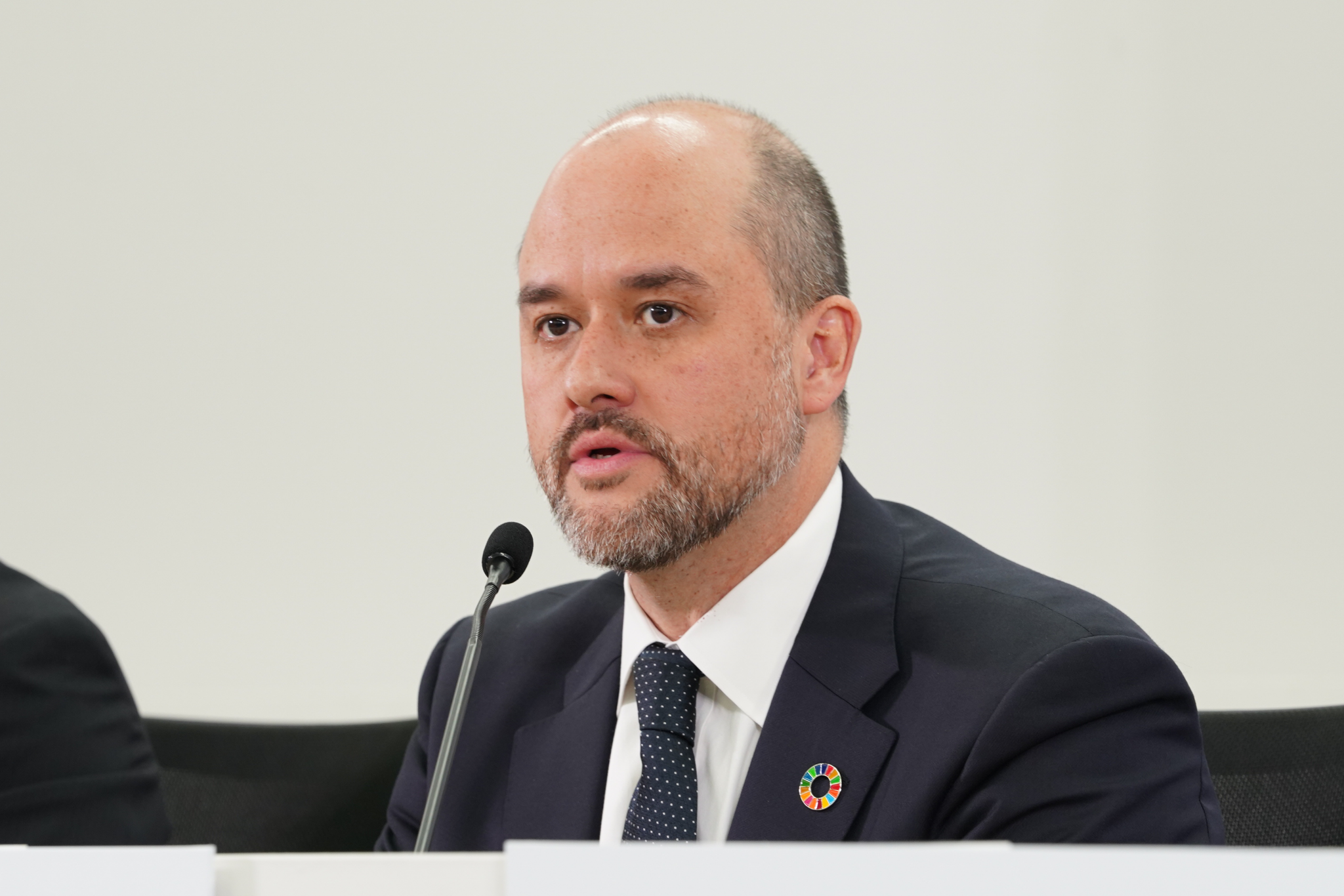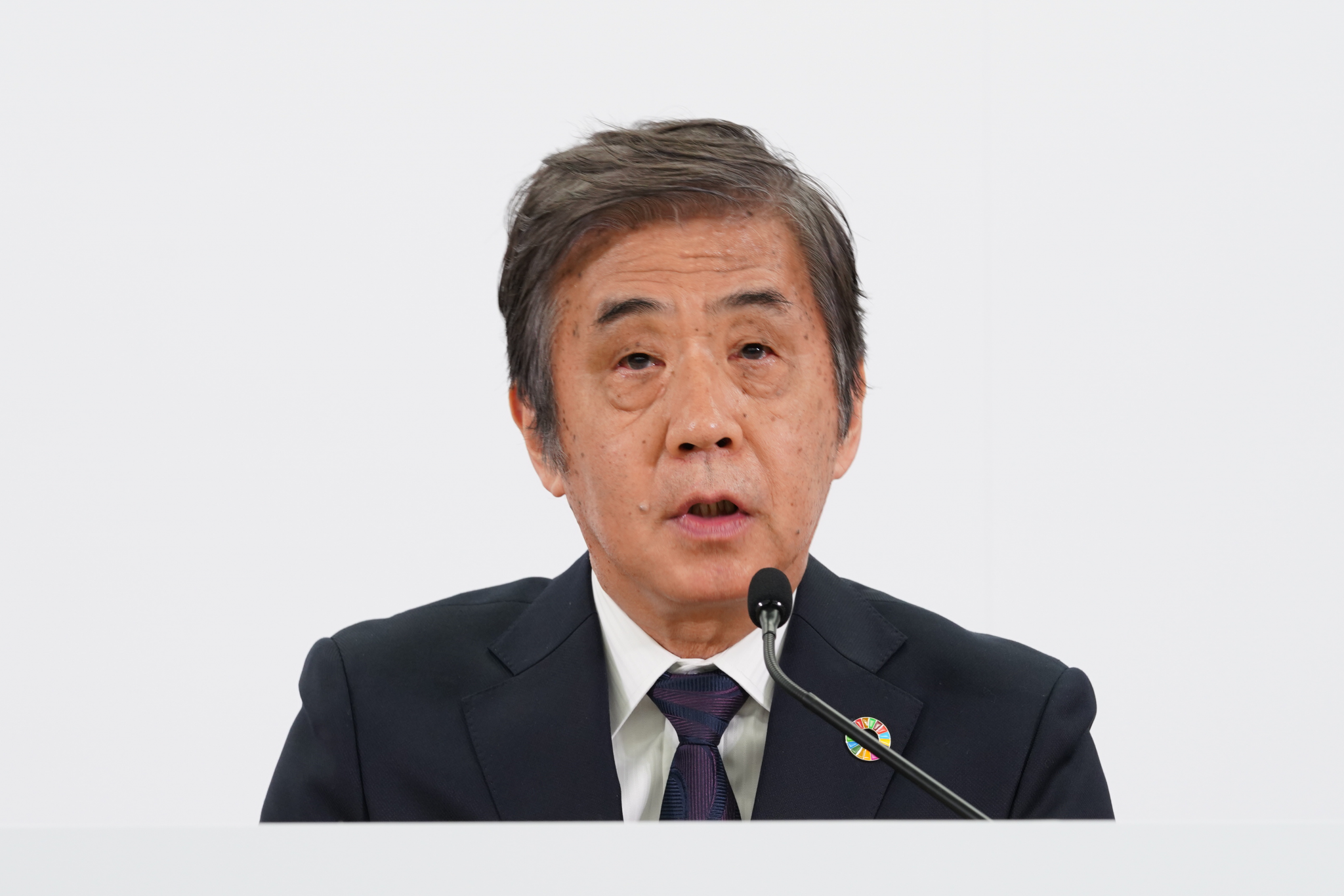Press Conference
- HOME
- News
- Press Conference
- JAMA Press Conference May 2025
JAMA Press Conference May 2025

The Japan Automobile Manufacturers Association (JAMA) held a press conference on May 22, 2025.
Chairman Masanori Katayama (Isuzu) reported on the content of discussions held at that day’s board meeting, including U.S. trade measures, automobile tax reform, and this year’s Japan Mobility Show.
Full Archive of Press Conference
The press conference opened with greetings from Ivan Espinosa (Representative Executive Officer, President and CEO, Nissan Motor Co., Ltd.), who was appointed Vice Chairman of JAMA at the May 22 board meeting.
Ivan Espinosa, Vice Chairman
(Representative Executive Officer, President and CEO, Nissan Motor Co., Ltd.)

I am deeply honored to have been appointed to the position of Vice Chairman of JAMA and understand the responsibility the position brings.
Over the past 20 years, I have worked in various markets around the world and witnessed the characteristics of many industry players.
Through that experience, I believe the strengths of the Japanese automotive industry are its strong passion for monozukuri, high technological capabilities, and solidarity.
The automotive industry in Japan and globally is undergoing a significant transformation, and we are all facing new challenges every day.
Here in Japan, the automotive industry plays a very important role in the national economy and is a key industrial indicator.
Going forward, I will work with the JAMA Chairman and fellow Vice Chairmen to contribute to the development of the Japanese automotive industry and the growth of the Japanese economy.
I strongly believe we have the combined power to achieve this. Therefore, I intend to fully leverage my knowledge, experience, and skills in this effort. I appreciate your support and look forward to working closely with you at JAMA. Thank you.”
Next, Chairman Katayama talked about current JAMA activities, as follows.
KATAYAMA Masanori, Chairman
(Chairman, Isuzu Motors Ltd.)

“In the mere two months since our last press conference in March, uncertainty with respect to the global economy has increased.
Against that backdrop, discussions at today’s board meeting focused primarily on U.S. trade measures, automobile tax reform, and the Japan Mobility Show to be held later this year.
Based on those discussions, I would like to start with some remarks on the current status of activities undertaken by our industry.
First, regarding trade issues:
The U.S. government imposed an additional 25% tariff on automobiles on April 3 and on auto parts on May 3. As is widely recognized, these measures are already beginning to impact not only Japan and the United States, but the global economy as a whole.

We recently released the latest data on the contributions of Japanese automakers to the U.S. economy. By the end of 2024, the automakers’ cumulative investment in the U.S. since the start of local production in 1982 reached $66.4 billion and their cumulative production volume achieved the milestone of 100 million vehicles.
In 2024 alone, Japanese automakers produced 3.28 million vehicles locally in the U.S., providing direct employment to 110,000 people and supporting more than 2.2 million jobs through the broader economic ripple effects.
Moreover, we are proud to be making social and economic contributions in the U.S. by offering products that provide peace of mind to our customers through their high levels of environmental and safety performance.
Taking all this into consideration, we deeply appreciate the Japanese government’s efforts in being among the first to initiate discussions with the United States and in ensuring the provision of a forum for ongoing dialogue.
With the United Kingdom already having reached a trade agreement with the U.S., we strongly hope that Japan will also persist in tenacious negotiations towards an early agreement. At the same time, we look forward to continued productive dialogue between the Japanese and U.S. sides in order to maintain a forward-looking path and a business environment that supports the growth of the auto industry in both countries.
Domestically, we are also sincerely grateful for the government’s timely outreach with respect to the automotive supply chain. This includes the establishment of special consultation services across the country, financial assistance, business management advice, and the introduction of support measures for small- and medium-sized suppliers in the auto sector.
For our part, JAMA will continue working closely with the Japan Auto Parts Industries Association in the interest of protecting the livelihoods of the 5.5 million people who work in the automobile and related industries. Together with our suppliers, we will make every effort to preserve our industry.
However, we also share the view that in order to sustain the automotive industry, it is vital that not only supply-chain support but also long-term measures to stimulate domestic demand be addressed.
JAMA has long advocated for a fundamental reform of Japan’s automobile-related tax system, which collects 9 trillion yen in revenue across 9 different taxes. The system in its present configuration deviates significantly from the principles of simplicity and fairness and is antithetical to understanding and acceptance on the part of users.
Moreover, the increasing uncertainty of the international situation that I alluded to earlier has underscored the gravity and urgency of the dual challenge of how to secure domestic demand and sustain domestic production and employment over the medium- to long-term.
In light of these circumstances and in view of the central government’s intention to reach a conclusion on automobile tax reform this year, we at JAMA strongly urge the government and relevant ministries to implement significant changes in the auto tax system, with the leading priority being the elimination of the environmental performance tax which is imposed together with the consumption tax at the time of vehicle purchase and which effectively constitutes double taxation. As we see it, the goal is both to streamline the auto tax system and reduce its burden on users in order to create a framework that permanently secures domestic demand.

With less than six months to go, preparations for the Japan Mobility Show are now well underway. Precisely because of the uncertainty prevailing in the global landscape and in the environment surrounding the automotive industry, we are more determined than ever to present a vision of future mobility that brings enjoyment and inspiration to all.

Successor to the longstanding Tokyo Motor Show, the Japan Mobility Show held last year focused on the promotion of new business partnerships within the mobility sector and beyond. This year, however—just as we did two years ago with the show’s inaugural edition—we are preparing a full-scale event open to the general public. In addition to automakers, a wide range of industries will be represented by established as well as startup companies that will come together to showcase, collectively, a vibrant vision for the future of mobility.
We plan to share further details on this year’s Japan Mobility Show with the media in a briefing scheduled for late June, so please stay tuned. As always, we greatly appreciate the support extended by all members of the press towards the automotive industry.
This concludes my remarks. Thank you for your attention.”

